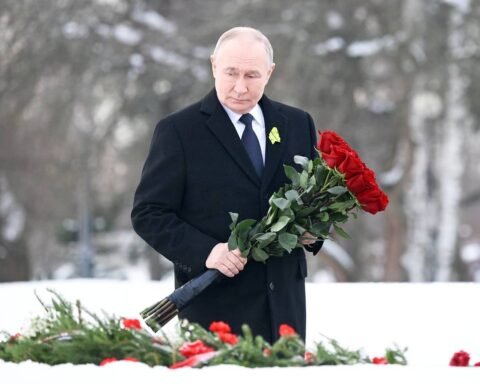A video showing King Mswati III of Eswatini arriving in Abu Dhabi has gone viral again, drawing widespread attention and sparking mixed reactions online.
The footage captures the monarch traveling with his 15 wives, about 100 attendants, and 30 children — an entourage that reportedly caused a brief disruption at the airport.
The video, which first surfaced in July, resurfaced this week on social media platforms, reigniting discussions about royal wealth, tradition, and inequality. Viewers can be seen marveling at the king’s grand arrival, complete with multiple vehicles, bodyguards, and royal aides escorting family members down the tarmac.
King Mswati, often referred to as Africa’s last absolute monarch, is known for his opulent lifestyle and elaborate public appearances. His arrival in Abu Dhabi underscored his reputation for grandeur, but it also reignited criticism from observers who argue that such extravagance contrasts sharply with the economic realities many of his citizens face back home.
In Eswatini, a small landlocked kingdom in southern Africa, roughly two-thirds of the population lives below the poverty line. While the monarchy maintains deep cultural roots, critics say the country’s vast social and economic inequality has become increasingly difficult to ignore. Civil society groups have frequently called for democratic reforms and more transparency in how national wealth is distributed.
Also Read; Trump Revives Global Trade Battle With Tariffs
Supporters of the king, however, defend his lifestyle as part of Eswatini’s long-standing cultural tradition. They argue that his role is not merely political but symbolic — serving as a custodian of Swazi customs and unity. The Reed Dance Festival, for example, remains one of the kingdom’s most cherished annual events, drawing thousands of young women in celebration of purity and heritage, and reinforcing the monarchy’s cultural significance.
The viral clip has triggered a range of reactions online. Some social media users expressed astonishment at the logistics of coordinating such a large royal entourage, while others criticized the perceived extravagance amid widespread economic challenges. Memes, jokes, and debates have flooded digital platforms, turning the king’s trip into a trending topic once again.
Political analysts note that such global attention highlights the tension between preserving cultural identity and addressing modern expectations of governance and accountability. As one commentator observed, “King Mswati’s lavish lifestyle is not just a royal affair — it’s a mirror reflecting Africa’s struggle between tradition and transformation.”
While the Eswatini royal household has not officially commented on the renewed viral attention, the video continues to circulate widely, sparking conversations about power, privilege, and the evolving role of monarchy in the 21st century.







